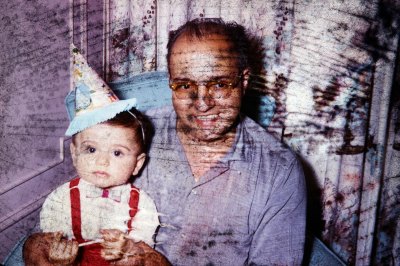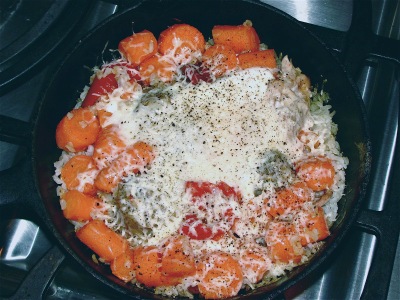I’m like most humans. Certain smells get to me.
Drop a nice hunk of butter onto a red-hot skillet and before it has melted I am transported to my brother Joe’s apartment in Queens, watching as he carefully prepares the special pancakes that he knows I love so much. Pour out a glass of sweet red vermouth and at the first whiff my dear Uncle Dominic and I are sitting under his grapevine, telling stories and watching the bottle slowly drain as the summer sun sets.
I’m proud to have the smell of his sand and gravel and mortar living in my brain forever.
My strongest scent memory by far involves my father. And a jar of Noxzema skin cream.
Every night, right around my bedtime, dad would be in the bathroom shaving. He always kept the door wide open and often could be heard saying this or that to my mother or to one of us boys. Before heading off to bed I would come up behind my father and tap on his leg or on the small of his back. He’d turn and bend down so that I could reach up and kiss him goodnight. His skin was smooth and moist and warm—and strongly smelling of Noxzema skin cream, his prefered beard-softening elixir.
It was my favorite daily ritual; I looked forward to it each and every evening.
I mean right now, at this minute, right here.
I can summon the aroma at will. Anytime. Anywhere. Just try me.
There it goes now.









